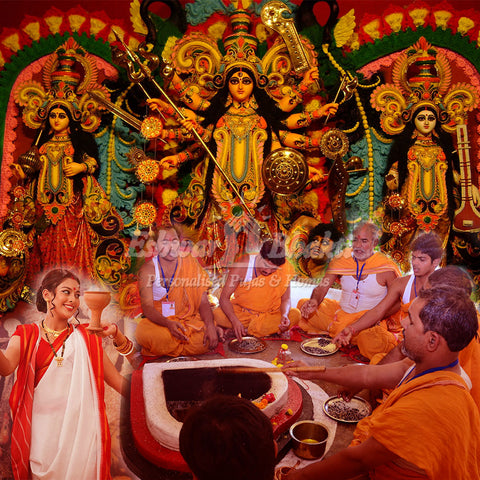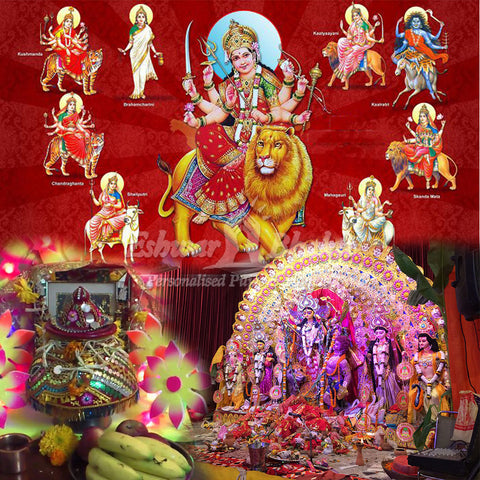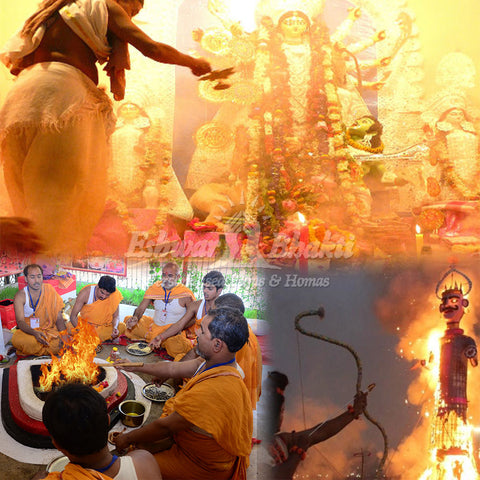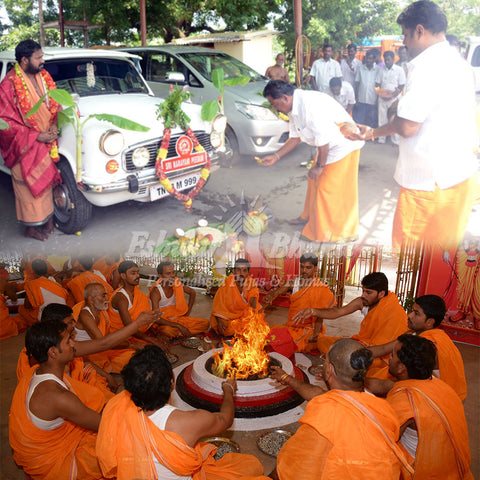Dussehra festival
 Dussehra is also known as Vijayadashmi in many parts of the Indian subcontinent. These two words are synonymous with each other. One part of the word means victory while the other part means “on 10th day”. The primary aim of the Dussehra festivities is to mark “the victory of good over evil”.
Dussehra is also known as Vijayadashmi in many parts of the Indian subcontinent. These two words are synonymous with each other. One part of the word means victory while the other part means “on 10th day”. The primary aim of the Dussehra festivities is to mark “the victory of good over evil”.
Origin of Dussehra: Dussehra is the victory day adopted from the Indian epic poem “Ramayana”. This poem records the story of a young, to-be-king “Rama”. The struggles of his life and, his surprising victory over one of the most feared and an invincible person of his era is what “Ramayana” is about. The entire poem is an artwork of a highly renowned poet of that era, “Maharshi Valmiki”. It is believed that the story told in “Ramayana” took place on 5 BCE.
Story of Ramayana: The word “Ramayana” is a combination of 2 Sanskrit words viz “Rama” and “Ayana”. These two words mean the story of “Rama’s time”. The main character, Rama is considered as the seventh incarnation of one of the Hindu gods “Lord Vishnu” who is one part of the great trinity of India gods viz “Lord Brahma, “Lord Vishnu”, and ”Lord Shiva”. In this way, Rama is himself a god whom Hindus worship.
The story of “Ramayana” talks about Rama who was selected as the king of “Ayodhya” by his father. But, his father is bound to fulfill one wish of his second wife named “Kaikaiyi”, who asks Rama’s (on receiving news of Rama’s selection as new king) father to banish Rama to the forest for the coming 14 years so that her son could become the king of Ayodhya. Rama being a dutiful son acknowledges Kaikaiyi’s wish for exiling him. But, his wife “Sita” and younger brother “Lakshamana” did not wish to let him go alone. So, both accompanied him during his years of exile.
During his stay in the forest, his wife Sita is abducted by the invincible “Ravana” who wishes to marry her. Rama’s search for his wife remained fruitless. So, he formed an alliance with the monkey-king “Sugreev” to search for his wife. Then Rama and the allied forces travel everywhere in the South of the Indian subcontinent to find the whereabouts of Ravana. He and his allies find Sita in the custody of Ravana at his kingdom, “Lanka”.
After many failed attempts to persuade Ravana to return his wife peacefully, Rama had to declare a war to rescue his wife. Therefore, he and his allied forces moved towards Ravana’s kingdom, Lanka. The last days of the war were fought between Ravana and Rama that continued for 9 consecutive days. On the 10th day, Rama kills Ravana and frees Sita devi. This 10th day of the final battle is celebrated as “Dussehra”.
How is Dussehra celebrated? : The day is celebrated with great vigour almost everywhere in the Indian Subcontinent. A number of plays are organized by committees all over the country depicting the key events of Ramayana. This play is popularly known as “Ramleela”. People put tilaks on their forehead, offer sweets and fruits to the gods in temples. The priests in temples recite the Ramayana verses all day long. In the evening, an effigy of Ravana filled with crackers is burnt.
Religious Significance of Dussehra: Since Lord Rama is an incarnation of one of the three prime gods in Hindu religion “Lord Vishnu”, the importance of his life story is considered to have a huge religious significance. He is often referred to as “Maryada Purushottama” for the fact that he always faced life without breaking any protocols of the Hindu belief system. Every part of Ramayana directs men about how to spend life even if it is a challenging one.
The festival of Dussehra depicts the victory of good against evil. Ravana was a powerful king. And, he was also a great devotee, a warrior, an educated person, and an artist. But, he fails to ebb his ego thereby mistreating his people as well as his family members. And when his torment surpasses its limit, Lord Vishnu reincarnates on Earth to liberate the world from his torments. Hence, the life of Rama and his battle with Ravana is considered as a religious battle. And the day of victory is celebrated till today all over the Indian subcontinent as Dussehra.
Spiritual Significance of Dussehra : Rama is considered as “self” or “consciousness”. And, Ravana is considered as ten primal negatives emotions. Or, ten things that keep us apart from self-realization. These ten negativities are ego, attachment, regret, anger, greed, jealousy, lust, insensitivity, fear, and hatred. These ten negativities naturally come with different situations of our lives. But, one has to overcome these negativities to know actual himself/herself. Otherwise, we would remain unconscious of self and continually aim to satisfy ourselves with worldly pleasures only.
One is considered eligible to celebrate Dussehra in its true sense only if he/she has gained victory over his senses/emotions and, is no more a slave to his emotions.
Is Ramayana a work of fiction or a real story?
Since the story of Ramayana took place thousands of years ago, so there is a lot of debate on it being a real story. The war of Ramayana took place in Lanka, presently known as “Sri Lanka”. The country of Sri Lanka acknowledges more than 50 historical sites that are depicted in Ramayana. Even tours are held there to visit the specific sites featured in the Ramayana. So, it seems that Ramayana is not a work of fiction in its entirety.
Additionally, several South-Eastern countries of Asia apart from India and Sri Lanka, regularly organize plays of the Ramayana. Some of these countries are Myanmar, Indonesia, Cambodia, Laos, the Philippines, Nepal, Thailand, Malaysia, Mongolia, and Vietnam. Tourists enjoy the play with great awe and enjoyment. Hence, a huge proportion of the population of the South-Eastern Asian countries acknowledge the existence of Lord Rama (without religious boundaries) which makes the “Ramayana” an actual story and not a work of fiction completely.
There were times when a certain amount of devotion to someone could automatically turn a human towards self-awareness. However, nowadays it is all about materialism. Thus, the importance of festivals like Dussehra that indirectly remind us to move towards self-consciousness while facing all the challenges of life, is becoming more and more relevant these days.




